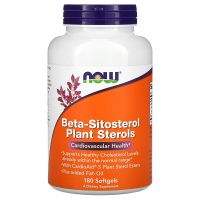Beta-Sitosterol
Other Names: Angelicin, Angélicine, B-Sitosterol 3-B-D-glucoside, B-Sitosterolin, Beta Sitosterin, Bêta-sitostérine, Beta Sitosterol, Bêta-Sitostérol, Beta-Sitosterol Glucoside, Beta-Sitosterol Glycoside, Campesterol, Campestérol, Cinchol, Cupreol, Ester de Stérol Végétal, Esters de Phytostérol, Esters de Stérol Dérivés d’huile Végétale, Glucoside de Bêta-Sitostérol, Phytosterol, Phytostérol, Phytosterol Esters, Phytosterols, Phytostérols, Plant Sterol Esters, Plant Sterolins, Plant Sterols, Quebrachol, Rhamnol, Sitosterin, Sitosterol, Sitosterolins, Sterinol, Stérolines, Stérolines Végétales, Sterolins, Stérols Végétaux, Stigmasterol, Stigmastérol, Vegetable Oil Sterol Esters, 3-beta-stigmast-5-en-3-ol, 22-23-dihydrostigmasterol, 24-beta-ethyl-delta-5-cholesten-3beta-ol, 24-ethyl-cholesterol. Beta-sitosterol is a substance found in plants. Chemists call it a “plant sterol ester.” It is found in fruits, vegetables, nuts, seeds, soy, flaxseed, peanuts, olive oil. Also available in dietary supplement form, beta-sitosterol is classified as a phytosterol (a class of compounds similar to cholesterol). Some scientific studies suggest that beta-sitosterol may offer certain health benefits.
Special Precautions of Beta-Sitosterol
- Beta-sitosterol is generally considered safe when consumed in recommended doses for up to six months. However, there's some concern that beta-sitosterol may contribute to harmful effects in people with certain chronic conditions (including diabetes, gallstones, and Alzheimer's disease). Therefore, it's critical to talk to your physician prior to using beta-sitosterol supplements.
- Beta-sitosterol is LIKELY SAFE for most people when taken by mouth. It can cause some side effects, such as nausea, indigestion, gas, diarrhea, or constipation. Beta-sitosterol has also been linked to reports of erectile dysfunction (ED) and loss of interest in sex.
- Beta-sitosterol is POSSIBLY SAFE when applied to the skin.
- Sitosterolemia, a rare inherited fat storage disease: People with this condition have too much beta-sitosterol and related fats in their system. They are prone to early heart disease. Taking beta-sitosterol makes this condition worse. Don’t take beta-sitosterol if you have sitosterolemia.
- Ezetimibe (Zetia) interacts with BETA-SITOSTEROL
- Pravastatin (Pravachol) interacts with BETA-SITOSTEROL
The benefits of Beta-Sitosterol are
Beta-sitosterol is touted as a natural remedy for a variety of health conditions, including:
- Benign prostatic hyperplasia : There's some evidence that beta-sitosterol may help treat benign prostatic hyperplasia (or BPH, a condition commonly referred to as "enlarged prostate"). Although BPH rarely causes symptoms in men under age 40, many older men experience BPH-related symptoms (including urination and bladder problems). BPH is not linked to increased risk for prostate cancer. Beta-sitosterol appears to improve urological symptoms associated with BPH, according to a report published in BJU International in 1999. For the report, investigators analyzed four previously published clinical trials with a total of 519 men and a treatment period of four to 26 weeks. Although the report's authors concluded that short-term treatment with beta-sitosterol may help improve BPH symptoms, they caution that beta-sitosterol's effectiveness as a long-term BPH treatment is unknown. There is a lack of more recent research on the effectiveness of beta-sitosterol in the treatment of BPH.
- Cancer : Preliminary research suggests that beta-sitosterol may help fight colon cancer. In a 2010 laboratory study published in BMC Complementary and Alternative Medicine, for instance, scientists found that beta-sitosterol isolated from the Asclepias curassavica plant inhibited the growth of human colon cancer cells.Some research indicates that beta-sitosterol may also fight breast cancer. For example, a 2003 laboratory study published in Oncology Reports found that beta-sitosterol induced apoptosis in breast cancer cells. Apoptosis, a type of programmed cell death, is key to halting the proliferation of cancer cells.Furthermore, a 2008 laboratory study published in Molecular Nutrition and Food Research found that using beta-sitosterol in combination with the breast cancer drug tamoxifen may enhance the drug's effectiveness. It's important to note that more research needs to be conducted before beta-sitosterol can be recommended for the treatment or prevention of any form of cancer.
- to lower cholesterol and triglyceride levels, thereby contributing to a healthy heart and circulatory system. Beta-sitosterol mimics cholesterol in structure, but serves a very different biological function. Its similarities allow it to limit the amount of cholesterol that is absorbed by the body, giving the liver more time to capture and eliminate circulating cholesterol. Beta-sitosterol also tricks the cells into thinking it is cholesterol, thwarting the danger and providing a safe replacement.
- allergies
- asthma
- bronchitis
- chronic fatigue syndrome
- colds
- fibromyalgia
- the flu
- gallstones
- high cholesterol
- menopausal symptoms
- migraines
- psoriasis
- rheumatoid arthritis
- In addition, beta-sitosterol is purported to prevent heart disease and some forms of cancer (including prostate cancer and colon cancer). Proponents also suggest that beta-sitosterol can help stimulate the immune system, relieve pain, reduce inflammation, and enhance sexual function.
